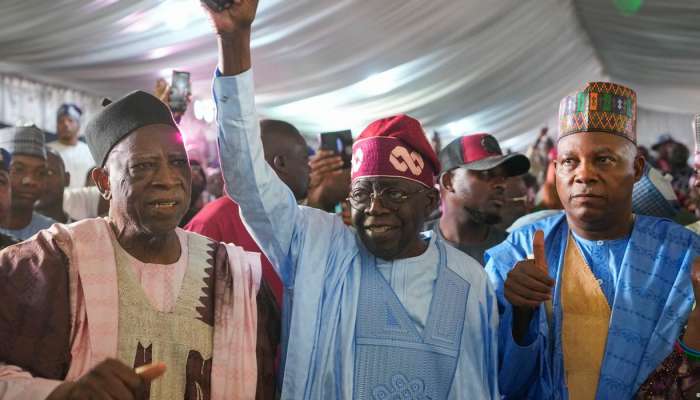
Abuja: Bola Tinubu is set to be sworn in as the new president of Nigeria on Monday amid pressure to resolve sustained economic and security issues plaguing the country.
The 71-year-old southerner won the elections that were held in February this year with 8.8 million votes ousting the 80-year-old Muhammadu Buhari who is also a member of the All Progressives Congress party (APC).
Sometimes referred to as the political "godfather", Tinubu has been known for exerting power from behind the scenes and using his extensive network to back candidates for office.
However Tinubu only won the elections with 37% of the vote, the lowest share since 1999.
Accusations of rigged elections
While Tinubu bagged the required number of votes across two-thirds of states in Nigeria, two of Tinubu's main opponents have cried foul. They have challenged the election results on the basis of electoral fraud.
The hearing of the main arguments will commence on Tuesday but the court's decision is not expected until September.
Nigeria's electoral commission admitted there had been "glitches" during the ballot but refuted claims that the elections were not free and fair.
Nigeria's economic and security challenges
During his tenure, Buhari had promised to resolve issues of corruption and insecurity but left many disappointed.
The country is reeling under economic distress that has resulted in two-decades of high inflation, record debt, weak currency, shortages of foreign exchange and fuel.
Violence is rampant in the country with separatists and gangs wreaking havoc in the southeast which has left many Nigerians feeling insecure.
The oil-rich nation also faces the major challenge of swapping crude oil worth billions of dollars for gasoline which it then needs to subsidise for its domestic market. This has contributed to ballooning debt.
The incoming government will also need to prioritize issues concerning security which have seen a significant rise in recent years.